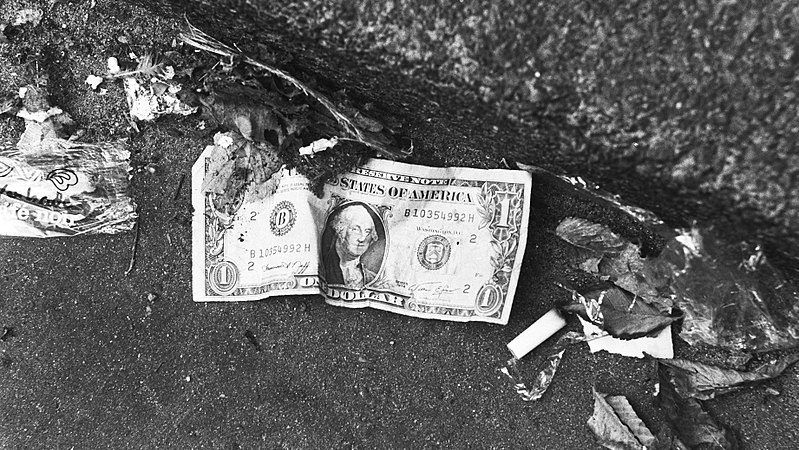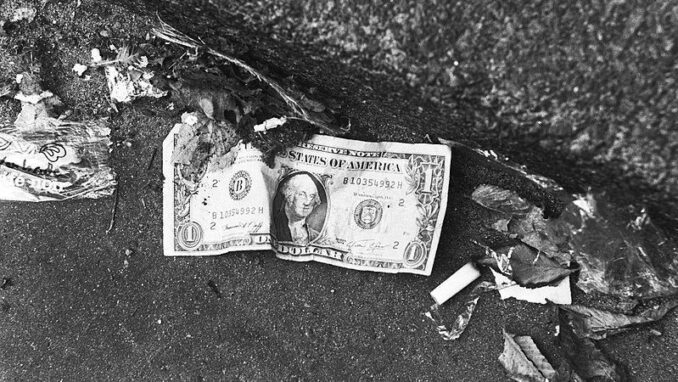

A Venezuelan international relations expert, Rodríguez Gelfenstein was previously Director of International Relations of the Presidency of the Bolivarian Republic of Venezuela, his country’s ambassador to Nicaragua, and an advisor on international politics for TELESUR. You can follow him on Twitter: @sergioro0701


In previous articles we have said that [U.S.] imperial power is based on three pillars: its great military apparatus, its undoubted superiority in terms of control of the global cultural-media apparatus and its self-granted power of being the holder and sole issuer of the dollar – a currency that plays the role of the main exchange instrument for world trade.
In future articles we will elaborate on the first two of these criteria, whose situations are different and have particularities, because while its military predominance begins to fade, its preponderance in the field of culture and communications has become the primary tool for sustaining its hegemony.
Today we will give some clues to expose the progress of the de-dollarization process, which seems to be the most moving and the most accelerated progress in terms of weakening the global power of the United States.
The figures are clear: In 2001, world reserves in dollars were 73% of the total; by 2021 that figure had been reduced to 55% and to 47% the following year. This exposes that last year the dollar’s share of world finance fell 10 times faster than the average of the last two decades, which is undoubtedly a figure of extraordinary impact. According to the Brazilian international analyst Pepe Escobar: “Now it is no longer unreasonable to project a world share of the dollar of only 30% by the end of 2024, coinciding with the next U.S. presidential elections.”
Paradoxically, the origin of this abrupt drop came from the freezing of Russian reserves in the West (an amount greater than $300 billion), sounding the alarm that it was no longer safe to hold dollar reserves abroad. The decision to freeze unleashed a veritable avalanche of de-dollarization that has been evidenced through decisions of countries and international alliances throughout the planet.
Why not yuan or real or peso?
Although the process developed gradually, it reached a level of profound acceleration one moment last April. Perhaps, if we wanted to establish for history a fact that expresses the moment of influence of this course, we could locate it at the moment when Brazil’s President Luis Ignacio Lula da Silva reflected aloud on the matter, during his trip to China last April: “Every night I wonder why all countries have to trade backed by the dollar […] Why can’t we trade backed by our own currencies? Who decided that the dollar was the (global) currency after the disappearance of the gold standard? Why not the yuan or the real or the peso?”
A few days earlier, on March 30, Brazil and China had announced a trade agreement that would allow them to use the currencies of the two countries, the yuan and the real, respectively. This decision, although it was not the first, was inserted in a dynamic that would follow, stimulating other Latin American countries and other regions to follow suit.
Thus, when Argentina faced a situation of deep economic and financial crisis caused by a lack of foreign currency that was aggravated by the impositions of the International Monetary Fund (IMF) and a difficult negotiation of the payment of the debt, it decided to renounce the dollar as payment of this debt, resorting to the Chinese yuan not only in regard to the trade with Beijing, but also to pay its own debt to the IMF.
In the same month of April, similar processes began to be decided upon in other places on the planet. Thailand and China began talks to further promote their national currencies for bilateral trade, which they have used for years for transactions between the two countries. In addition, the People’s Bank of China has established cooperation mechanisms with the Ministry of Finance of Japan, the Central Bank of Malaysia and the Bank of Indonesia, to use national currencies for trade, investment and payments in the private sector.
Similarly, other countries have joined the de-dollarization. These include Russia, Saudi Arabia, Belarus, Iran, and Egypt, which are promoting the use of national currencies for bilateral trade. All of this has set off alarm bells in Washington, which is watching helplessly as one of the pillars of sustenance of its global domination crumbles.
In this sense, Republican Senator Marco Rubio said: “If this trend continues, in five years the White House will not be able to sanction any country.” Likewise, Secretary of the United States Treasury Janet Yellen affirmed that although it would be difficult to stop using the dollar, she recognized that if this were to happen, it would have very serious consequences for her country. In an act of strange compliance, Yellen conceded “the sanctions against Russia have pushed nations to stop using the American currency.”
Given continuity to what at the end of April already seemed an inevitable course of events, the president of Syria, Bashar al-Asad, urged abandoning trade in dollars, proposing to replace the U.S. currency with the Chinese yuan. According to the Syrian president, “… the war between the West, led by the United States, and sovereign countries is mainly economic, [so] it is necessary to get rid of the shackles of trading with the U.S. dollar.”
Similarly, on April 22, Bangladesh and India agreed to conduct a portion of their bilateral trade transactions in their respective national currencies, the taka and the rupee. According to Afzal Karim, CEO of Sonali Bank Limited, the largest state-owned commercial bank in Bangladesh, the decision was based on the conviction that “the bilateral trade with India in taka and rupees will take pressure off the U.S. dollar, producing a benefit for both countries.”
BRICS discuss common currency
Within this framework, the foreign ministers of the BRICS group, meeting in Cape Town on June 1, addressed the issue. The ministers discussed the possible launch of a common currency to advance the de-dollarization process and its possible expansion, ahead of the summit of heads of state and government of the economic bloc to be held next August. In this regard, the Minister of International Relations and Cooperation of South Africa, Naledi Pandor, stated that this was a matter that should be “properly discussed.”
Some of the countries involved in the process up to now are members of the BRICS group, into which more than 20 countries have requested incorporation. The five countries that currently make up this group produce 32.1% of the World GDP, compared to 29.9% for the Group of Seven. Thus, the impact of what is happening is of global strategic importance.
Following the trend, Indonesia, one of the largest economies in Southeast Asia, joined the BRICS group’s decision to move away from the dollar and trade with its own currency, initiating the diversification of the use of currency in the form of LCT [trade in local currency]. According to the governor of the Bank of Indonesia, Perry Warjiyo, its direction is the same as that of the BRICS. In fact, Indonesia has taken more concrete decisions, since Jakarta has already implemented local currency trading with several countries, including Thailand, Malaysia, China, Japan and South Korea.
It is worth mentioning that in this framework, as an expression of Chinese interest in internationalizing its currency, in March the yuan became the most used financial instrument for carrying out cross-border transactions in China, surpassing the dollar for the first time. The yuan experienced an increase of 26% from the previous month, according to a Reuters calculation based on data from China’s State Administration of Foreign Exchange.
Already in the month of May, following this guideline of international finance, the Zimbabwean government set out to launch a gold-backed digital currency to reduce its dependence on the dollar and protect its citizens from currency fluctuations. According to the Reserve Bank of Zimbabwe (RBZ), in a first phase, gold-backed digital currencies will be issued for investment purposes with a vesting period of 180 days and redeemable in the same way as existing physical gold coins.
In South America, following the Brazilian-Argentine bilateral decision to trade with their local currencies, Bolivia announced that it was examining the possibility of not trading in U.S. dollars and instead using China’s yuan to carry out its international transactions.
In a press conference on the 10th of that month, Bolivian president Luis Arce affirmed that Argentina and Brazil, being the two largest economies in the region, were already trading in yuan in agreements with China. Arce explained that despite the fact that the area has traditionally been under the influence of the United States, currently many countries conduct more foreign trade with China than with the North American country, adding that the region’s trend is going in that direction.
Based on this diagnosis, Arce declared that: “Bolivia could not remain outside of what is happening while it does direct trade with China, [so] it is unnecessary to trade in dollars.”
Along the same lines, President Nicolás Maduro of Venezuela said that his country must adhere to a system in which “currency is not used to enslave the peoples” and considered that Venezuela must “join the initiative of de-dollarization of the world.”
At the same time that Maduro ordered his cabinet to study other alternatives for commercial exchange, in order to avoid the political use that the United States makes of its currency, the president of the Bolivarian republic of Venezuela explained that “as the world becomes more multipolar, pluricentric and balanced, a [larger] basket of currencies will appear for trade and for financial operations.”
Philadelphia On March 26, the Pennsylvania Supreme Court denied political prisoner Mumia Abu-Jamal permission to…
There are two important and overlapping holidays on April 22: Earth Day and Vladimir Lenin’s…
Twelve people were arrested April 9 for blocking traffic to Travis Air Force Base, a…
Secretary-General of Hezbollah Sheikh Naim Qassem delivered a speech on April 18, 2025. Resistance News…
Anakbayan Philadelphia held a rally on April 19 to demand the U.S. end its military…
Boston, April 20, 2025 The leadership of the Democratic Party nationally and especially in Massachusetts…